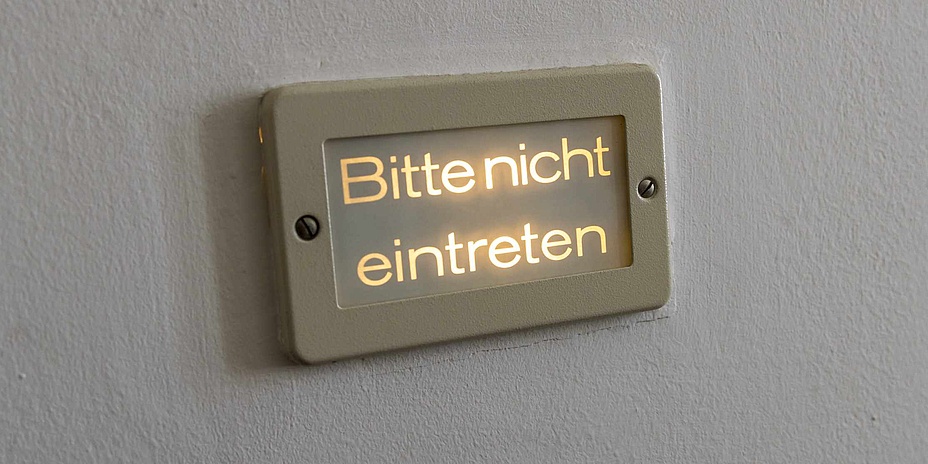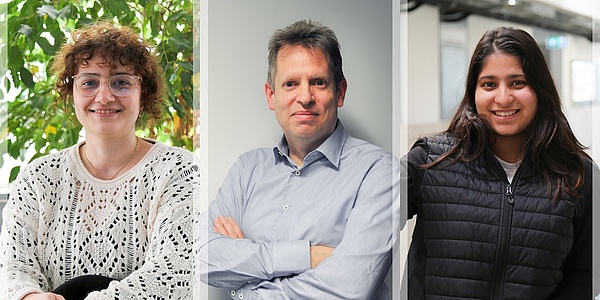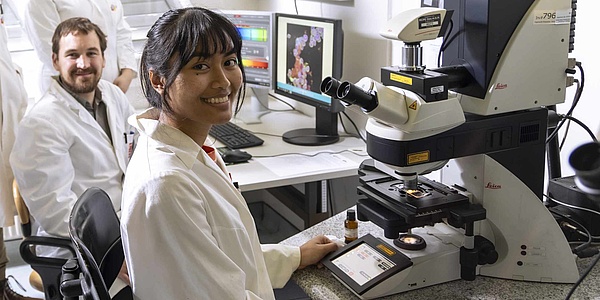Employee Interviews: Great Opportunity or Just a Compulsory Exercise?

Once a year, all employees at TU Graz have them in their diaries: employee interviews. Often in the summer months, as everyday working life is usually a little quieter at this time. This is now and again accompanied by the question: what is the point of employee interviews/ performance reviews? Melanie Krachler from the Human Resource Development service department explains: ‘The benefit of these confidential one-on-one meetings lies in taking time for each other. This allows you to take stock together, look to the future and address topics that often don’t find time in your busy working schedule but are nevertheless important to you. Whether they were challenges or events that you were particularly pleased about. In the employee interview, you look back together on the past months, give each other feedback and work together on the future.’ But what is the best way to do this? What makes a good dialogue – for both sides, for employees and for superiors?
How to make your employee interview a success: tips for your one-on-one meeting:
What is important to you?
Give your interlocutor an insight into your working environment and discuss the things that occupied you over the past year. Regardless of whether it’s about the past or where you would like to develop in the future. See the conversation as an opportunity that you can use to your advantage. Looking back also often serves to look forward.
The interview offers me the opportunity to share my thoughts openly, to receive and give constructive feedback, to identify challenges and work out solutions together and to reflect on my achievements to date.
Volker Koch, Institute of Business Economics and Industrial Sociology
If you want to address critical issues, use first-person messages where possible, such as ‘I have the impression that...’ or ‘I am disappointed because...’. I-statements express a feeling and at the same time put into words how it came about. Identify critical issues with examples that are as concrete as possible.
Preparation is the key
Prepare yourself for the appraisal. Questions you can ask yourself include, for example: What went well, what went differently than planned? In what direction do I want to develop further? Und last but not least: What did I find positive and what did I find less positive about working with the manager or colleagues?
This also applies from a superior perspective. The appraisal must be well prepared and thought out. Take a look back at the past year, but also look to the future: what opportunities for development are there? Think about how you can make even better use of your interlocutor’s strengths and make progress together.
Personal, appreciative and development-orientated
What follows applies to both employees and superiors: Approach the conversation with a positive attitude and show interest in the person you are talking to. Give yourself time for the dialogue and plan at least one hour. Ensure an undisturbed atmosphere and do not allow yourself to be interrupted by phone calls.

The conversation should be open, equal and respectful. Both sides should have their say, with the employee’s time a little bit longer. It is important to recognise your interlocutor and ask questions – it’s not just about talking, but also about listening.
Current and urgent issues are regularly discussed at the institute, but important things sometimes don’t get the attention they need. Regularly taking some time to review lessons learned and eying the future can give both sides more security.
Katrin Ellermann, Institute of Mechanics
Through all of this, the employee interview also offers the opportunity to capture the mood and working atmosphere in the team or organisational unit and to agree on future developments. The best way to achieve this is through the so-called SMART goals – i.e. goals that are Specific, Measurable, Ambitious as well as Realistic and Time-bound.
Documents for your employee interview
Structure the conversation according to the following points: Taking stock, planning the future, discussing cooperation, agreeing development measures. Further information and documents for your employee interview can be found in TU4U. Don’t forget to record the results of individual meetings in writing, such as agreements on objectives or development measures. Please send the last page of the interview protocol to mag@tugraz.at by 10 January of the following year at the latest, even if you have not agreed any development measures. In this way, they help to continually develop the in-house training programme.
Last but not least
If your superior does not arrange an employee interview with you, take the initiative and ask for one yourself.
To sum up the most important points about the employee interview: Positive attitude I Prepare yourself I Take your time I Ensure an undisturbed appraisal atmosphere I Listening is just as important as talking – the employee’s conversation time should predominate I Treat your interlocutor with respect I Formulate SMART goals I Give feedback – but also accept it I Record important points in writing.
Kontakt
Human Resource Development
Melanie Krachler
Brockmanngasse 29, 2nd floor, 8010 Graz
+ 43 316 873 6057
melanie.krachler@tugraz.at
You can find this article and other articles to browse through in TU Graz people #89, the magazine for TU Graz employees and interested parties.




